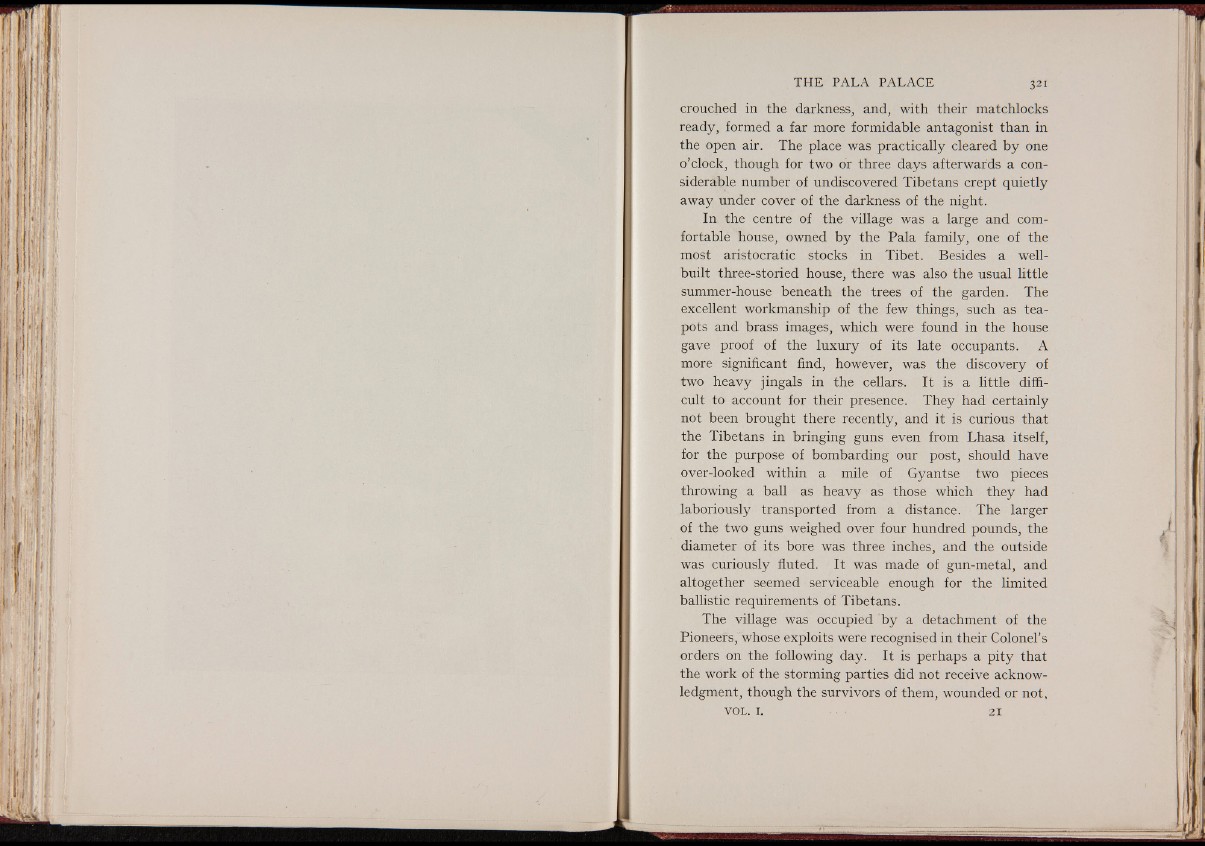
crouched in the darkness, and, with their matchlocks
ready, formed a far more formidable antagonist than in
the open air. The place was practically cleared by one
o’clock, though for two or three days afterwards a considerable
number of undiscovered Tibetans crept quietly
away under cover of the darkness of the night.
In the centre of the village was a large and comfortable
house, owned by the Pala family, one of the
most aristocratic stocks in Tibet. Besides a well-
built three-storied house, there was also the usual little
summer-house beneath the trees of the garden. The
excellent workmanship of the few things, such as teapots
and brass images, which were found in the house
gave proof of the luxury of its late occupants. A
more significant find, however, was the discovery of
two heavy jingals in the cellars. It is a little difficult
to account for their presence. They had certainly
not been brought there recently, and it is curious that
the Tibetans in bringing guns even from Lhasa itself,
for the purpose of bombarding our post, should have
over-looked within a mile of Gyantse two pieces
throwing a ball as heavy as those which they had
laboriously transported from a distance. The larger
of the two guns weighed over four hundred pounds, the
diameter of its bore was three inches, and the outside
was curiously fluted. It was made of gun-metal, and
altogether seemed serviceable enough for the limited
ballistic requirements of Tibetans.
The village was occupied by a detachment of the
Pioneers, whose exploits were recognised in their Colonel’s
orders on the following day. It is perhaps a pity that
the work of the storming parties did not receive acknowledgment,
though the survivors of them, wounded or not,
v o l . 1. 2 1